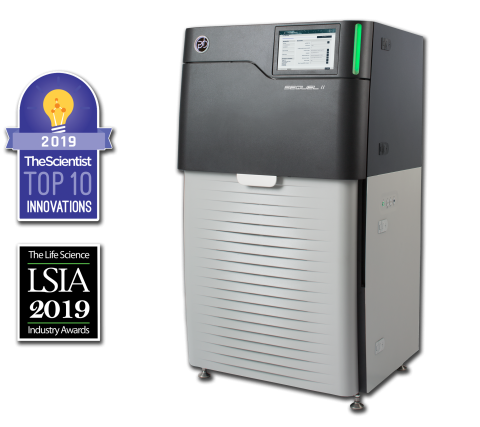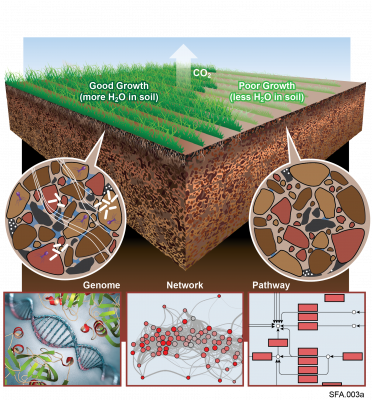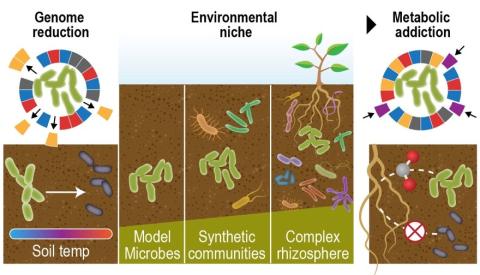Today, the most common methods used for medical device sterilisation are by gaseous ethylene oxide and by electron beam or gamma irradiation. With X-ray sterilisation about to enter the market, its material compatibility needs to be assessed at doses typically encountered during a sterilisation...
Filter results
Tags
- (-) Mass Spectrometry (14)
- (-) Genomics (12)
- Virology (79)
- Immune Response (53)
- Time Sampled Measurement Datasets (50)
- Gene expression profile data (47)
- Differential Expression Analysis (46)
- Homo sapiens (34)
- Mass spectrometry data (31)
- Multi-Omics (30)
- Viruses (26)
- Omics (25)
- Health (23)
- Virus (23)
- Soil Microbiology (21)
- MERS-CoV (18)
- Mus musculus (18)
- Synthetic (14)
- sequencing (13)
- West Nile virus (13)
- Ebola (11)
- Influenza A (11)
- PerCon SFA (10)
- High Throughput Sequencing (9)
- Metagenomics (9)
- Resource Metadata (9)
- Microbiome (8)
- Proteomics (8)
- Machine Learning (7)
- Microarray (7)
The literature on the effects of radiation on the properties of various polymers and composites has been briefly reviewed for the purpose of identifying polymeric materials that could be irradiated to improve their performance. Radiation treatment of polymers may lead to cross-linking or chain...
Category
Category
Viral communities detected from three large grassland soil metagenomes with historically different precipitation moisture regimes.
Category
"Visualizing the Hidden Half: Plant-Microbe Interactions in the Rhizosphere" Plant roots and the associated rhizosphere constitute a dynamic environment that fosters numerous intra- and interkingdom interactions, including metabolite exchange between plants and soil mediated by root exudates and the...
The radiolysis of liquid water and the radiation-matter interactions that happen in aqueous environments are important to the elds of chemistry, materials, and environmental sciences, as well as biological and physiological response to extreme conditions and medical treatments. The initial stage of...
The Sequel II System Sequencer is a high-throughput DNA sequencer machine developed and manufactured by PacBio , and is designed for high throughput, production-scale sequencing laboratories. Originally released in 2015, the Sequel system provides Single Molecule, Real-Time (SMRT) sequencing core...
The quantum mechanical treatment of both electrons and nuclei is crucial in nonadiabatic dynamical processes such as proton-coupled electron transfer. The nuclear−electronic orbital (NEO) method provides an elegant framework for including nuclear quantum effects beyond the Born–Oppenheimer...
Human infections caused by viral pathogens trigger a complex gamut of host responses that limit disease, resolve infection, generate immunity, and contribute to severe disease or death. Here, we present experimental methods and multi-omics data capture approaches representing the global host...
Category
LIQUID Software Overview LIQUID provides users with the capability to process high throughput data and contains a customizable target library and scoring model per project needs. The graphical user interface provides visualization of multiple lines of spectral evidence for each lipid identification...
Category
pmartR Software Overview The pmartR package provides a single software tool for QC (filtering and normalization), exploratory data analysis (EDA), and statistical analysis (robust to missing data) and includes numerous visualization capabilities of mass spectrometry (MS) omics data (proteomic...
The Phenotypic Response of the Soil Microbiome to Environmental Perturbations Project (Soil Microbiome SFA) at Pacific Northwest National Laboratory is a Genomic Sciences Program Science Focus Area (SFA) Project operating under the Environmental Microbiome Science Research Area. The Soil Microbiome...
Datasets
23
Last updated on 2023-02-23T19:37:46+00:00 by LN Anderson PerCon SFA Project Publication Experimental Data Catalog The Persistence Control of Engineered Functions in Complex Soil Microbiomes Project (PerCon SFA) at Pacific Northwest National Laboratory ( PNNL ) is a Genomic Sciences Program...
Datasets
3
Biography Kristin Burnum-Johnson is a senior scientist and team lead of the Biomolecular Pathways team at PNNL. Burnum-Johnson earned her PhD in Biochemistry from Vanderbilt University with Professor Richard M. Caprioli and then completed a postdoctoral fellowship at PNNL with Dr. Richard D. Smith...
Category
Biography Young-Mo Kim is a senior bioanalytical chemist at PNNL. He received his PhD from Pohang University of Science and Technology in the School of Environmental Science and Engineering, studying analysis of metabolites during the bacterial and fungal degradation of xenobiotic substrates using...






